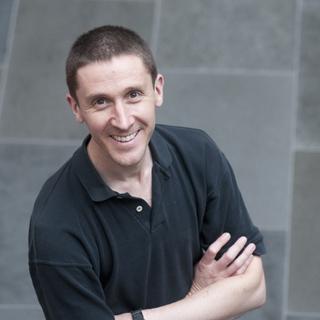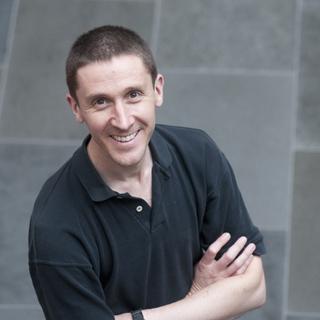
Credit: University of Warwick
- Study will examine why some cells divide incorrectly and cause cancer
- Cause of genetic defects in cancer cells will be investigated
The University of Warwick has started research to understand the cause of brain tumours.
A team based at the University's Warwick Medical School will study brain tumour cells in the lab to understand more about the cell division process, and how it can cause cancer when it goes wrong.
Cancer cells have genetic defects caused by problems in sharing chromosomes during cell division. This new research will investigate how these problems occur.
Associate Professor, Dr Stephen Royle, has been awarded £158,000 to fund the research. The funding is from the Cancer Research UK Pioneer Award, which backs the brightest ideas and blue sky thinking in cancer research.
Dr Royle said: "When cells divide they have to make sure that the chromosomes which contain the cell's DNA split equally so that two accurate cells are made.
"We know it's important for cells to divide properly because in 90 per cent of solid cancers and 50 per cent of blood cancers, the cancer cells have unequal numbers of chromosomes. That means they haven't divided properly.
"My team's work aims to better understand how this process going wrong can cause cancer. Ultimately our future goal would be to see if drugs can be developed and used to stop the cells dividing unequally and potentially stop cancer cells forming. Or, if they could be used to cause them to divide unequally in a more controlled manner, forcing the cancer cells to die."
This new research will investigate how these problems occur using powerful microscopes at the Medical Schools' Centre for Mechanochemical Cell Biology.
Dr Jess Sutcliffe, Research Funding Manager at Cancer Research UK, said: "Research like Dr Royle's is vital to increasing our understanding of cancer cell biology, in particular how cells divide and how if they do so incorrectly, it can lead to cancer. By carrying out research like this, scientists can look for and identify potential new ways to treat cancer and help more people survive the disease."
Applications for the Cancer Research UK Pioneer Awards are judged anonymously, and shortlisted researchers are given five minutes to pitch their ideas to a panel of experts. There's a pot of up to £200,000 available for those who succeed.
Dr Sutcliffe added: "The Pioneer Awards are as innovative as the research they fund. They allow us to find and fund researchers with big ideas that hold up in front of a panel of experts, and which have the potential to be game-changing for cancer research. Together with its partners, scientists, doctors and supporters, Cancer Research UK's vision is to bring forward the day when all cancers are cured."
Dr Royle's award is for two years and will end in 2019.
###
Notes to Editor:
To find out how to support Cancer Research UK visit: http://www.cancerresearchuk.org
About Cancer Research UK
- Cancer Research UK is the world's leading cancer charity dedicated to saving lives through research.
- Cancer Research UK's pioneering work into the prevention, diagnosis and treatment of cancer has helped save millions of lives.
- Cancer Research UK receives no government funding for its life-saving research. Every step it makes towards beating cancer relies on every donation.
- Cancer Research UK has been at the heart of the progress that has already seen survival in the UK double in the last forty years.
- Today, 2 in 4 people survive their cancer for at least 10 years. Cancer Research UK's ambition is to accelerate progress so that by 2034, 3 in 4 people will survive their cancer for at least 10 years.
Media Contact
Nicola Jones
[email protected]
247-615-0868
@warwicknewsroom
http://www.warwick.ac.uk
############
Story Source: Materials provided by Scienmag





